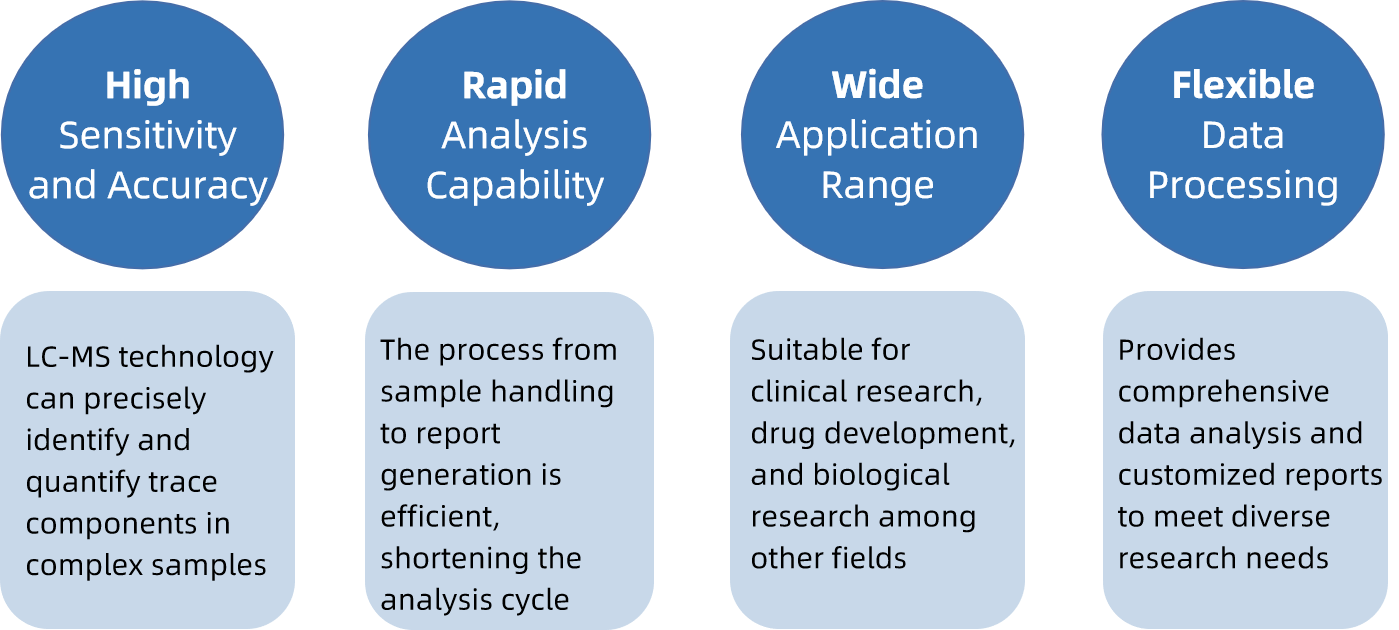L-α-Aminoadipic Acid Analysis Service
- Liquid Chromatography-Mass Spectrometry (LC-MS)
- Gas Chromatography-Mass Spectrometry (GC-MS)
- Liquid Chromatography-Tandem Mass Spectrometry (LC-MS/MS)
L-α-Aminoadipic Acid (L-α-AA) is a crucial non-proteinogenic amino acid and an intermediate in the lysine degradation pathway. It plays a vital role in metabolic regulation and physiological functions, particularly in processes related to oxidative stress and cellular energy metabolism. Changes in L-α-AA levels can be linked to various conditions, such as neurodegenerative diseases, metabolic disorders, and cardiovascular diseases. Accurate measurement of L-α-AA concentrations is essential for understanding its role in different health states and providing a basis for diagnosing and treating related diseases.

Figure 1. Molecular Structure of L-α-AA
MtoZ Biolabs utilizes liquid chromatography-tandem mass spectrometry (LC-MS/MS) to conduct detailed quantitative and qualitative analyses of L-α-AA. This advanced method integrates LC's rapid separation capabilities with the high detection sensitivity of MS/MS, facilitating the precise measurement of L-α-AA in complex biological matrices.
Analysis Workflow

Experimental Instruments
Service Advantages

Sample Submission Requirements
Sample Types
Serum, plasma, urine, tissue homogenates, and other biological samples.
Sample Volume
At least 200 μL of liquid sample or 200 mg of tissue sample.
Sample Preservation
Store and transport samples at -80°C to maintain L-α-AA stability.
Applications
Clinical Diagnosis: Measure L-α-AA levels in patients with neurodegenerative diseases, metabolic disorders, and cardiovascular diseases to assist in diagnosis and prognosis.
Metabolic Research: Investigate the roles of L-α-AA in oxidative stress and cellular energy metabolism.
Drug Development: Evaluate the impact of drugs on L-α-AA metabolism to aid in developing new therapeutic agents.
Nutritional Research: Analyze the metabolic changes of L-α-AA under different dietary conditions, providing scientific evidence for nutritional regulation and dietary supplementation.
Deliverables
1. Experimental Procedures
2. Relevant Liquid Chromatography and Mass Spectrometry Parameters
3. Detailed Information on L-α-AA
4. Raw Data
5. Custom Analysis Report
How to order?







